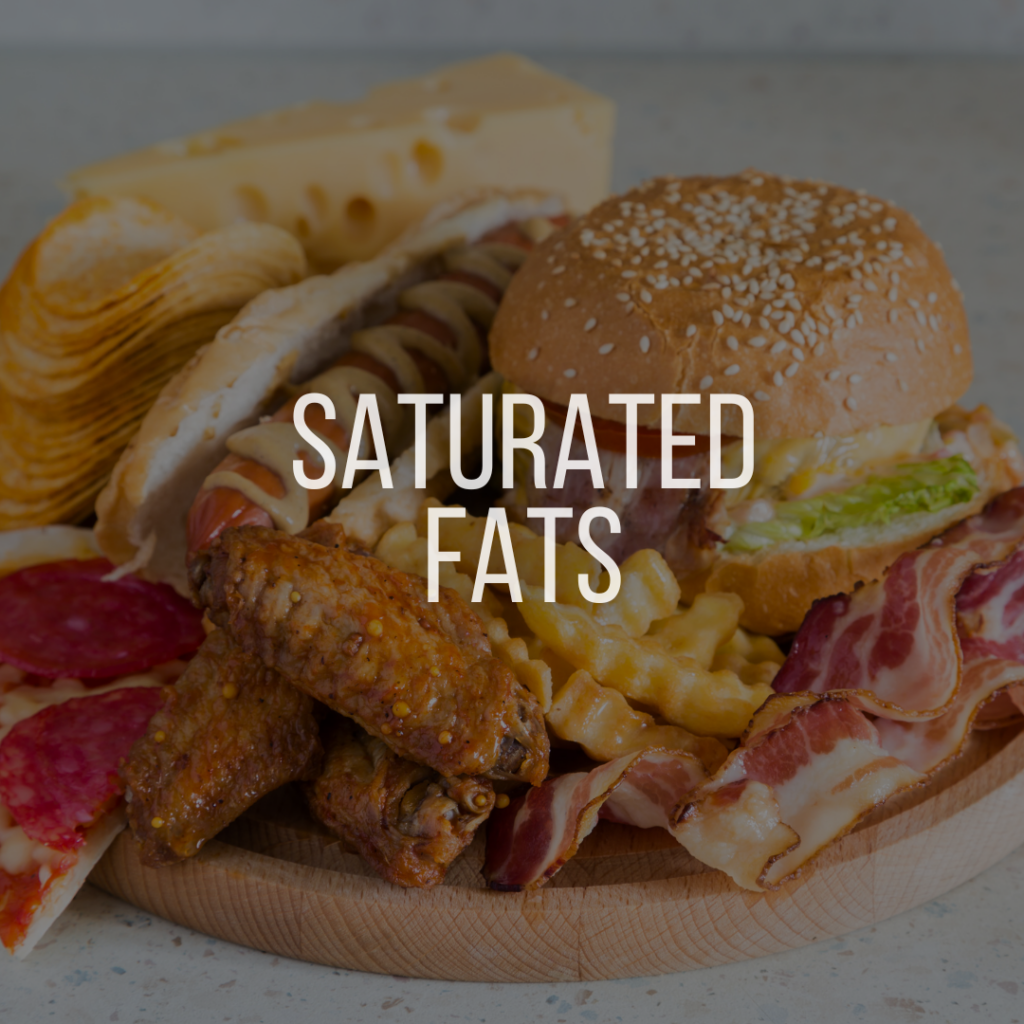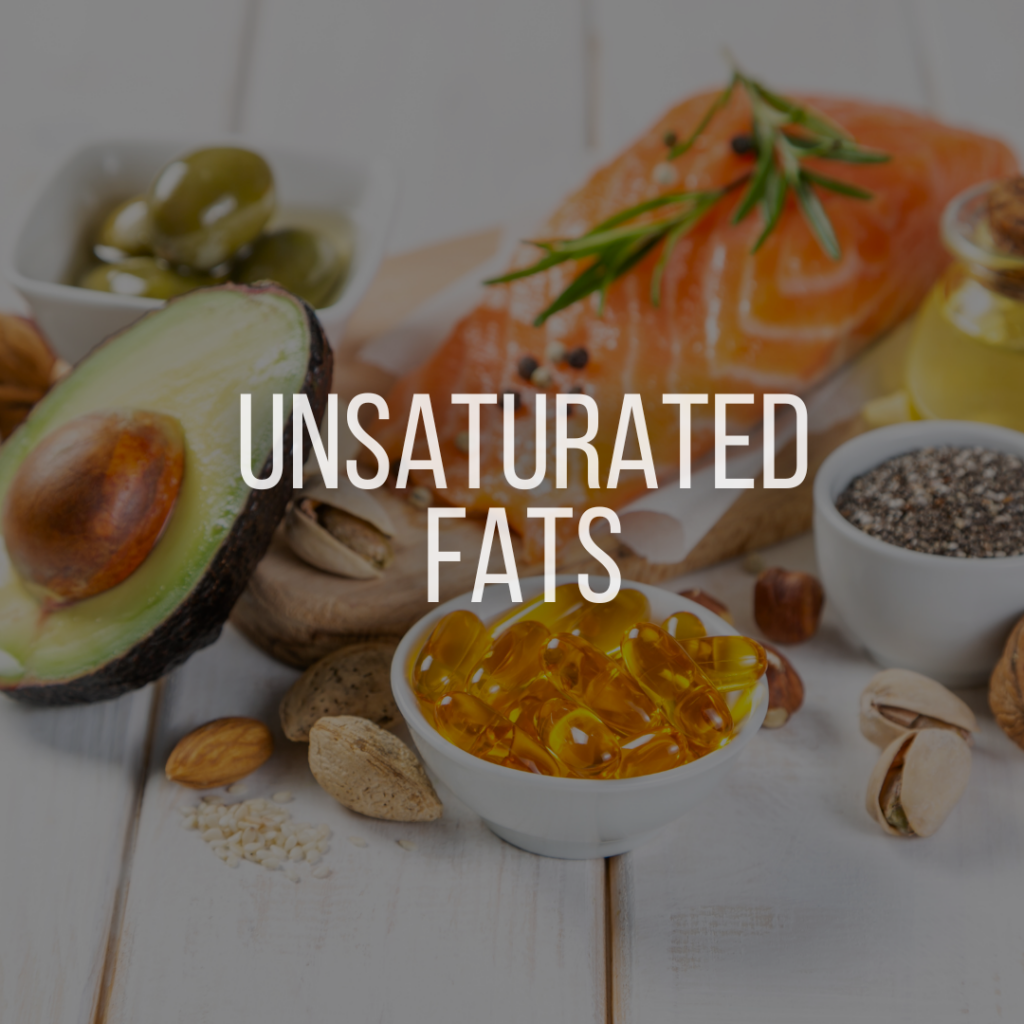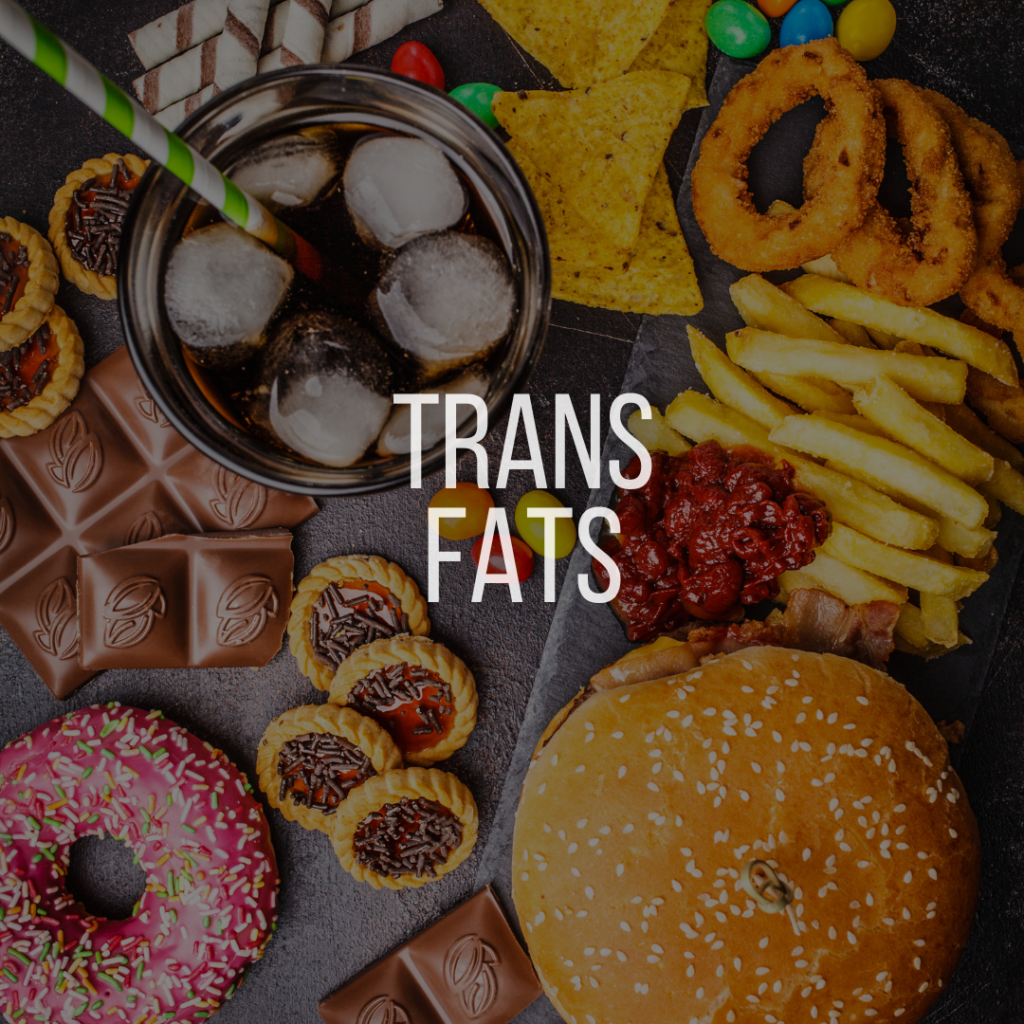Fat and Fabulous: Choosing the Right Fats
Do you blame fats for those stubborn pounds you can’t seem to shed? Or maybe you’re guilty of using them to amp up the flavor and texture of your food—perhaps a little too often? Should I try low-fat? No fat? We have all been there.
Fats are a type of macronutrient, which means they’re essential for your health in larger amounts. In fact, fats are the most energy-dense nutrient, providing 9 kcal per gram, while other macronutrients like protein and carbohydrates offer only 4 kcal per gram each. They play a key role providing fatty acids that assist in many important functions, like providing energy, supporting cell structure, and helping your body absorb fat-soluble vitamins. Despite what some low-fat diets suggest, fats are beneficial—it’s just important to choose the right types. They also have complex effects on your metabolism, influenced by factors like the type of fat, timing, and your individual body. Fats are crucial for everything from building cell membranes to producing sex hormones and fueling and protecting your body.
Types of Fats
There’s no doubt that the types of fats you consume daily influence your body’s metabolism and affect your organs. You’ve probably been told that reducing saturated fats or sodium is essential if you’re at risk for heart disease. Let’s break down the different types of dietary fats so you can improve not only your heart health but your overall well-being. The Dietary Guidelines for Americans recommends that 20-35% of your daily calories come from fat, with a focus on limiting saturated and trans fats.
Saturated Fats

Solid at room temperature, think lard or butter, saturated fats are found in animal-based products like beef, pork, and high-fat dairy foods such as butter, margarine, cream, and cheese. They also sneak their way into many fast, processed, and baked foods, like cheesy pizza, decadent desserts, juicy hamburgers, and those irresistible cookies and pastries. While they can add rich flavor and texture to our meals, these fats have gained a bit of a bad reputation. When consumed in excess, they can affect your health, such as raising your LDL-cholesterol levels, which is a major contributor to heart disease.
Unsaturated Fats

This is considered to be the healthy kind, and there are two types: monounsaturated and polyunsaturated. Monounsaturated fats (MUFA) are found in a variety of foods, including avocados, peanut butter, and nuts like almonds, hazelnuts, cashews, and pecans. They’re also present in seeds such as pumpkin, sesame, and sunflower, as well as in plant oils like olive, peanut, safflower, sesame, and canola oils. These healthy fats help increase HDL-cholesterol, which plays a key role in removing LDL-cholesterol from the bloodstream, reducing the harmful effects of LDL and promoting heart health.
Omega-9s are a specific type of MUFA, and are especially known for their heart-healthy benefits. One of the most common sources of omega-9s is olive oil, which is high in oleic acid. Although omega-9s are beneficial for your health, they are not considered essential because your body can produce them as needed.
Polyunsaturated fats (PUFAs) include essential fatty acids, such as omega-3 and omega-6 fatty acids. These healthy fats are found in plant-based oils like soybean, corn, and safflower oils, as well as in foods like walnuts, flaxseeds, sunflower seeds, and fatty fish such as salmon, mackerel, herring, tuna, and trout. PUFAs are crucial for brain health, heart function, and reducing inflammation.
The three main omega-3 fatty acids—alpha-linolenic acid (ALA), eicosapentaenoic acid (EPA), and docosahexaenoic acid (DHA)—each play important anti-inflammatory roles. ALA is considered a precursory for DHA and EPA but the conversion rate is slow. This nutrient is primarily found in plant oils like flaxseed, soybean, and canola oils, while EPA and DHA are mainly found in fish and other seafood. Omega-6s provide essential benefits like energy, maintaining healthy cell membranes, supporting skin health, regulating metabolism, and contributing to brain function. One key omega-6 fatty acid is linoleic acid (LA), which is commonly found in seed oils, as well as nuts and seeds. However, consuming too much can promote inflammation.
Trans Fats

Categorized as an unsaturated fat, trans fats are often considered the most harmful fat, similar to saturated fats, that should be avoided due to their negative impact on metabolic health. These fats are linked to an increased risk of heart disease and type 2 diabetes. Trans fats are created when vegetable oils—normally liquid at room temperature—undergo a process called partial hydrogenation. This chemical transformation turns the oils into a solid form at room temperature, which extends the shelf life of products for manufacturers. Unfortunately, this process comes at a cost to our health. Today, many packaged and processed foods contain trans fats, including fried foods, baked goods like cookies and pies, crackers, margarine, frozen desserts, and even candy bars.
Shop Smarter for Your Health
Often, low-fat products still contain filler carbs in the form of sugar to make up for the loss of flavor and texture. So, if a product is labeled ‘low-fat,’ be sure to check the ingredients for terms like ‘syrup,’ ‘sweetener,’ or anything ending in ‘-ose,’ as these are often signs of hidden sugars. When it comes to avoiding harmful fats, steer clear of foods that list ‘partially hydrogenated oils’ (PHOs) on the label, as these are a source of trans fats, which should be limited for optimal health.
Navigating ingredient labels can be tricky, but it’s important to make informed choices. Always try to avoid products with long, complicated ingredient lists that are hard to pronounce—these often indicate highly processed foods with additives and preservatives that may not be ideal for your body. Instead, look for simple, whole-food ingredients whenever possible, and you’ll be making strides toward a healthier, more balanced diet!
Experience Your Best Self with Tucson Wellness MD
We want you to love yourself, so focus on nourishing your body with healthy fats. By making mindful choices, you can not only support your heart and overall health but also feel your absolute best. If you’re looking to achieve your ideal weight and boost your energy, our weight loss services are here to guide you every step of the way. If you’re looking for nutritional support and guidance, don’t hesitate to reach out! Schedule a consultation today. At Tucson Wellness MD, we take pride in specializing in longevity and holistic wellness. Our approach is all about helping you live a vibrant, healthy life that lasts longer. Remember, today is the perfect day to start living better, for longer.
STAY HEALTHY – STAY CONNECTED